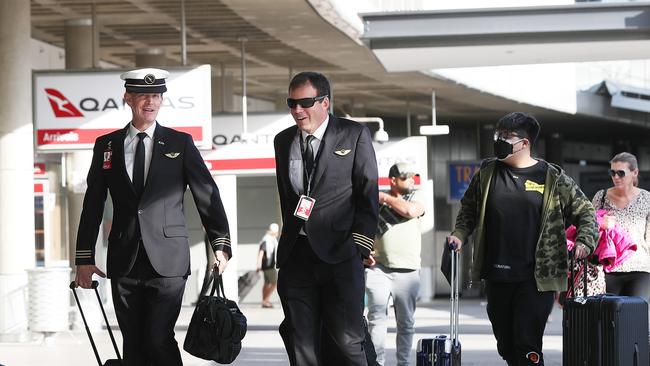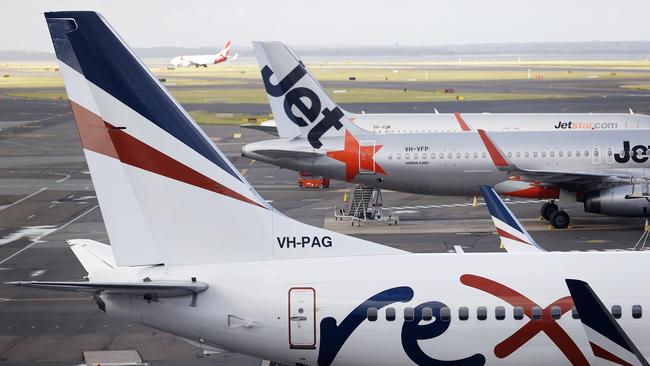Qantas short-haul pilots accept new pay deal for domestic fleet renewal
The airline’s pilots have agreed to a new pay deal to fly its new Airbus aircraft amid concerns about the industrial strategy used by Qantas.
Qantas short-haul pilots have agreed to a new pay deal to fly the airline’s new Airbus aircraft claiming they were threatened with outsourcing if they voted against the offer.
The A321XLRs and A220s will replace the current Qantas fleet of Boeing 737s and 717s starting from late-2024 in a transition the airline has called Project Winton.
Australian and International Pilots Association president Tony Lucas said Qantas’s approach to industrial relations in this matter was disappointing.
“While it is pleasing to see that main line pilots have secured flying the first A321s, it is important to acknowledge the looming threat of outsourcing that hung over this vote,” said Mr Lucas.
“It may seem to some within the company that this industrial methodology is the way forward, but I hope that a more collaborative approach can be achieved in the future, one that respects the role our members play in contributing to a profitable and safe airline.”
He said pilots would always be ready to continue safely flying the travelling public around Australia and the world.
A Qantas spokesman denied pilots were told a “no’ vote would mean short haul flying would be outsourced.
“Had either pilot group not been able to provide us with the working arrangements needed to get a return on our investment, another entity within the Qantas Group that was able to do this would have done the flying,” he said.
“This was communicated to our pilots throughout the process.”
He said bringing new aircraft into the domestic fleet was an exciting time for the Qantas Group, because it meant new opportunities for employees and opened up new routes.
“Reaching agreement with our pilots to operate these aircraft is great news and means we can start the work required to bring them into service,” the spokesman said.
“These changes were necessary to support such a large investment so that we can get the benefits of these new aircraft types, including the extended range they can fly.”
The ultimatum-style of enterprise negotiations used with pilots followed on from a similar scenario for flight attendants.
After Qantas’ long haul cabin crew voted down an updated enterprise agreement to help the airline rebuild its international network, the airline applied to the Fair Work Commission to have their current EBA torn up.
The move would have seen cabin crew placed on the “modern award” with the loss of significant wages and conditions.
After further negotiations, it was agreed a second vote would take place which Flight Attendants Association of Australia national secretary Teri O’Toole said they had no choice but to support.

Meanwhile, 290 Rex SAAB 340 pilots have voted in favour of industrial action, over a breakdown in four years of negotiations for a new pay deal.
The Australian Federation of Air Pilots claimed what Rex was offering would represent a real-time pay cut of 5 per cent, and did not include back pay.
A ballot was put to pilots proposing eight forms of industrial action including rolling four-hour stoppages.
All attracted in excess of 90 per cent support from the turboprop pilots with work bans to begin from Tuesday June 28.
Initially, pilots will refuse to wear elements of the Rex uniform and adopt a ban on loading extra fuel prior to flights, where the primary purpose of that is to negate the need to refuel at the destination airport.
No immediate plans for slopwork action are in place as yet.
A Rex spokesman said mitigating measures had been put in place to ensure services operate normally.
“The union and the company are aligned in our desire not to have the travelling public impacted especially during the school holidays when airports are expecting massive delays,” he said.
“Our passengers could expect minor changes to the service delivery, for example the uniform worn may not be the standard one.”





To join the conversation, please log in. Don't have an account? Register
Join the conversation, you are commenting as Logout